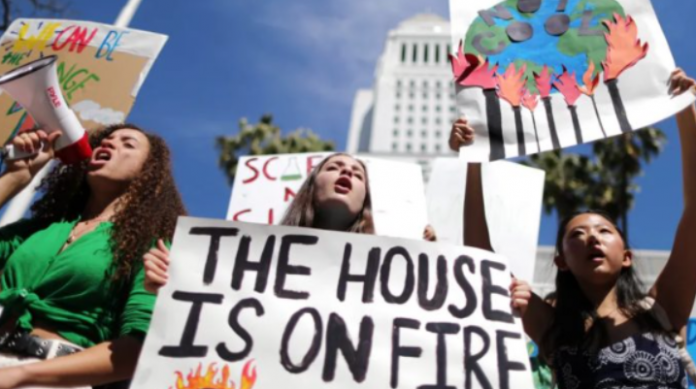On Thursday, the U.S. Supreme Court dealt a significant setback to Joe Biden’s environmental agenda by rejecting a move by the country’s environmental regulator. The judges determined that the Environmental Protection Agency (EPA) had made an incorrect decision by ordering an Idaho couple to stop constructing their desired lakeside family home. The EPA officials claimed that Michael and Chantell Sackett’s property, which was located approximately 300 feet from Priest Lake, was situated on wetlands designated as protected areas.
Furthermore, the EPA threatened the Sackett family with severe penalties exceeding $40,000 per day if they disregarded the agency’s directives, which aimed to enforce U.S. federal environmental regulations. Justice Samuel Alito remarked that the EPA had misconstrued the Clean Water Act and had acted unlawfully when issuing the order to the Sackett family. In his written opinion, Alito emphasized that the wetlands on the Sackett property were distinct from any potentially covered bodies of water, as they lacked a direct connection to them.
According to Alito, protected wetlands should exhibit a continuous surface connection with the water, making it challenging to determine the boundary between the water and the wetland.
He contended that the EPA’s understanding of the matter was overly expansive, excessively challenging to implement, and posed significant risks to property owners. Chief Justice John Roberts and Justices Clarence Thomas, Neil Gorsuch, and Amy Coney Barrett supported Justice Alito’s viewpoint, while the remaining four justices dissented from his decision. Justice Elena Kagan, known for her liberal stance, expressed her regret over how this ruling would hinder the EPA’s capacity to address climate change.
In both cases, Justice Elena Kagan, along with Justices Sonia Sotomayor and Ketanji Brown Jackson, criticized the Court for assuming the role of the ultimate decision-maker on environmental policy. This viewpoint was shared by the liberal justices.
The decision will provide a boost to farmers, home builders, and other developers, as it will make it easier for them to obtain building permits.
Damien Schiff, the Sacketts’ attorney, stated that the ruling would restore the Clean Water Act to its original and appropriate limits. He described it as a significant victory for property rights and the constitutional separation of powers.
West Virginia GOP Attorney General Patrick Morrisey expressed his satisfaction with the Supreme Court’s decision, noting that it would reduce the authority of unelected bureaucrats over state lands and waters.
Senator Joni Ernst, a Republican from Iowa, also praised the ruling, asserting that the federal government lacks the authority to impose broad jurisdiction over small bodies of water and wetlands based on vague and excessive regulations in support of President Biden’s ever-changing climate agenda.
Subsequently, President Biden expressed his anger through a statement, criticizing the court’s decision as one that goes against scientific evidence. The commander-in-chief also made a veiled warning, implying that his administration would seek ways to bypass the ruling by exploiting any potential legal loopholes.
He stated, “My team will work with the Department of Justice and relevant agencies to carefully review this decision and use every legal authority we have to protect our Nation’s waters for the people and communities that depend on them.”
This development follows a prior action taken by the conservative majority of the court last year, which limited the EPA’s authority to regulate emissions from power plants.
The debate surrounding the definition of wetlands has been ongoing for decades, with both the George W. Bush and Barack Obama administrations implementing regulations addressing this matter.








